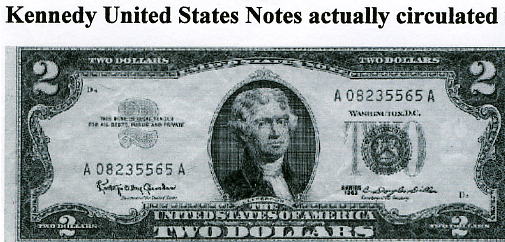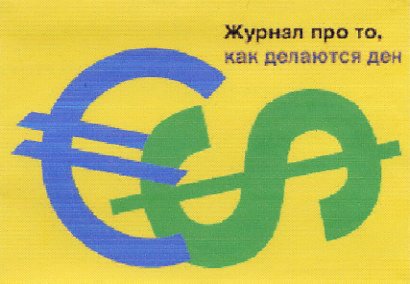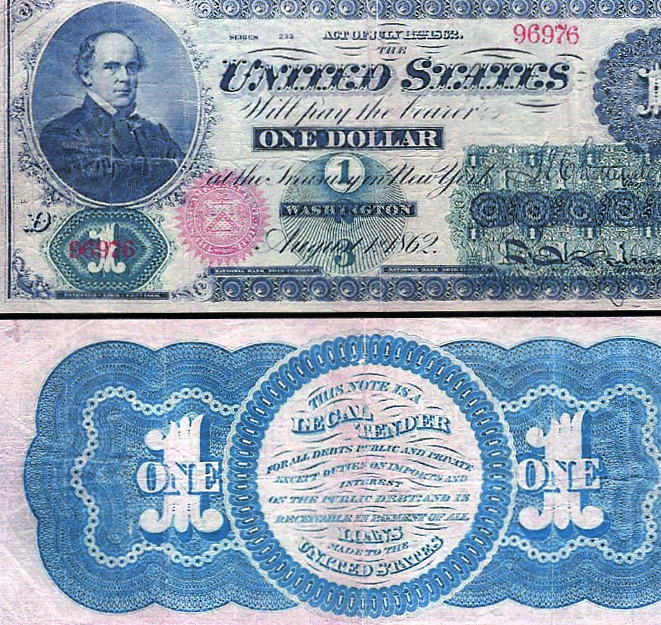To Orwell Today,
re: LINCOLN & KENNEDY COINCIDENCES
Dear Jackie,
I think it would be important to mention the importance of the real powers-that-be who have always pulled the strings of the world and how they have always benefited from fomenting world wars and terrorism. The coincidence relating to the deaths of these two presidents are none other than their defiance to the House of Rothschild.
When president Lincoln was faced with the problem of financing the Civil War he was offered financing through the Rothschild's usury schemes and quickly declined and gave issuance of the government greenback interest free. JFK also was becoming defiant against the power of the Rothschild's Federal Reserve monopoly. Anytime you have defiance against the formation or an already existing central banking system, death follows.
Andrew Jackson has "I Killed The Bank" written on his tombstone because he defeated the formation of a second Rothschild central bank.
The questions must always be steered towards who benefits. There are always agent provocateurs willing to do the dirty work of the powers that be, the international bankers.
From,
Carmen
Greetings Carmen,
Yes, the fact that Lincoln and Kennedy were taking control away from the international bankers, ie the Rothschilds et al, is no doubt one of the reasons they were assassinated. And the same goes for President Garfield and maybe even McKinley. See JFK VS FEDERAL RESERVE.
Here's an excerpt from ABRAHAM LINCOLN'S ASSASSINATION website describing the conspiracy of international bankers:
"This theory is that Abraham Lincoln was killed as a result of his monetary policies. John Wilkes Booth would be seen as a 'hired gun.' In its simplest terms, the theory is that Lincoln needed money to finance the Civil War. He was offered loans at high interest rates by bankers in Europe led by the Rothschilds. Rather than accept the loans, Lincoln found other means to fund the war effort. More importantly, the British bankers opposed Lincoln's protectionist policies. Some Englishmen in the 1860's believed that "British free trade, industrial monopoly and human slavery travel together." Lincoln's policies after the Civil War would have destroyed the Rothschilds' commodity speculations. After the war, Lincoln planned a mild Reconstruction policy which would have enabled a resumption of agriculture production. The Rothschilds were betting the other way on high prices caused by a tough Reconstruction policy toward the South. Lincoln was viewed as a threat to the established order of things, and he was assassinated as a result. The goal was to weaken the United States so the Rothschilds could takeover its economy. An article titled "The Rothschilds' International Plot to Kill Lincoln" was published October 29, 1976, in New Solidarity." [end quoting]
I found a website that has a good explanation of Lincoln's creation of the USA government's own money (the greenback dollar). Here's an excerpt:
THE HISTORY OF MONEY
"...Predictably Lincoln, needing money to finance his war effort, went with his secretary of the treasury to New York to apply for the necessary loans. The money changers wishing the Union to fail offered loans at 24% to 36%. Lincoln declined the offer. An old friend of Lincoln's, Colonel Dick Taylor of Chicago was put in charge of solving the problem of how to finance the war. His solution is recorded as this. 'Just get Congress to pass a bill authorising the printing of full legal tender treasury notes... and pay your soldiers with them and go ahead and win your war with them also.'
When Lincoln asked if the people of America would accept the notes Taylor said. 'The people or anyone else will not have any choice in the matter, if you make them full legal tender. They will have the full sanction of the government and be just as good as any money; as Congress is given that express right by the Constitution.'
Lincoln agreed to try this solution and printed 450 million dollars worth of the new bills using green ink on the back to distinguish them from other notes. "The government should create, issue and circulate all the currency and credit needed to satisfy the spending power of the government and the buying power of consumers..... The privilege of creating and issuing money is not only the supreme prerogative of Government, but it is the Government's greatest creative opportunity. By the adoption of these principles, the long-felt want for a uniform medium will be satisfied. The taxpayers will be saved immense sums of interest, discounts and exchanges. The financing of all public enterprises, the maintenance of stable government and ordered progress, and the conduct of the Treasury will become matters of practical administration. The people can and will be furnished with a currency as safe as their own government. Money will cease to be the master and become the servant of humanity. Democracy will rise superior to the money power. The solution worked so well Lincoln was seriously considering adopting this emergency measure as a permanent policy. This would have been great for everyone except the money changers who quickly realised how dangerous this policy would be for them...."
~ end quoting History of Money ~
Banks, in themselves, are needed. It's who CONTROLS the banks that is important. With presidents like Lincoln and Kennedy the government of the United States would be in control and not foreign bankers with no allegiance to America and who had already taken control of the economies of Europe and Britain. That is why I believe, like you, that international bankers were behind the assassinations of Lincoln and Kennedy - and many other leaders in nations prior to the founding of the United States.
All the best,
Jackie Jura
 Kennedy Executive Order 11110, Hub Pages
Kennedy Executive Order 11110, Hub Pages
On June 4, 1963, President John F. Kennedy signed Executive Order No. 11110 that returned to the U.S. government the power to issue currency, without going through the Federal Reserve (US Central Bank). Mr. Kennedy's order gave the Treasury the power "to issue silver certificates against any silver bullion, silver, or standard silver dollars in the Treasury." This meant that for every ounce of silver in the U.S. Treasury's vault, the government could introduce new money into circulation. As a result, more than $4 billion in United States Notes were brought into circulation in $2 and $5 denominations. $10 and $20 United States Notes were never circulated but were being printed by the Treasury Department when Kennedy was assassinated.
With the stroke of a pen, President Kennedy was on his way to putting the Federal Reserve Bank out of business. If enough of these silver certificats were to come into circulation they would have eliminated the demand for Federal Reserve notes. This is because the silver certificates are backed by silver and the Federal Reserve notes are not backed by anything. After Mr. Kennedy was assassinated just five months later, no more silver certificates were issued. The Executive Order was never repealed by any U.S. President through an Executive Order and is still valid. Why then has no president utilized it? Virtually all of the nearly $6 trillion in debt has been created since 1963, and if a U.S. president had utilized Executive Order 11110 the debt would be nowhere near the current level.
John F. Kennedy, Executive Order 11110. The American Presidency Project
"By virtue of the authority vested in me by section 301 of title 3 of the United States Code, it is ordered as follows: The authority vested in the President by paragraph (b) of section 43 of the Act of May 12, 1933, as amended (31 U.S.C. 821 (b)), to issue silver certificates against any silver bullion, silver, or standard silver dollars in the Treasury not then held for redemption of any outstanding silver certificates, to prescribe the denominations of such silver certificates, and to coin standard silver dollars and subsidiary silver currency for their redemption"...JOHN F. KENNEDY, THE WHITE HOUSE, June 4, 1963
Reader Brian says the link to executive order 11110 doesn't connect from the Home Page of the JFK library anymore
Reader Quint points out that the Executive Order 11110 link isn't working
 JFK DEFENDED DOLLAR, speech to International Monetary Fund, Sep 30, 1963 ("The security of the dollar involves the security of us all...We are determined to do whatever must be done in the interest of this country and, indeed, in the interest of all to protect the dollar as a convertible currency at its current fixed rate....")
JFK DEFENDED DOLLAR, speech to International Monetary Fund, Sep 30, 1963 ("The security of the dollar involves the security of us all...We are determined to do whatever must be done in the interest of this country and, indeed, in the interest of all to protect the dollar as a convertible currency at its current fixed rate....")
JFK Library Executive Order 11110 (Relating to the performance of certain functions affecting the Dapartment of the Treasury...)
CREATURE FROM JEKYLL ISLAND (excerpt from book)
LINCOLN & KENNEDY MADE MONEY
Home foreclosures up in USA (if you're flush there's opportunities). MSNBC, Jun 3, 2006. Go to 11.Ministry of Plenty & BANKS FORECLOSE UNIVERSALLY
 CIVIL WAR ITEMS OF INTEREST at earththlink.net
CIVIL WAR ITEMS OF INTEREST at earththlink.net
United States Note from 1862 with a picture of Secretary of the Treasury, Salmon Chase. As Secretary of the Treasury under Lincoln, Chase oversaw the issue of greenbacks, with $1 Notes bearing his picture. In 1864 Lincoln appointed Chase as Chief Justice of the Supreme Court. In Hepburn v. Griswold (Feb. 7, 1870), the Court ruled by a four-to-three majority that Congress lacked the power to make the notes legal tender. Chief Justice Salmon P. Chase, who as Secretary of the Treasury had been involved in enacting the Legal Tender Act in 1861, wrote the majority opinion, declaring that the Congressional authorization of greenbacks as legal tender violated Fifth Amendment guarantees against deprivation of property without due process of law....
10.Rulers and 35.The Brotherhood and 9.Keeping Masses Down
Jackie Jura
~ an independent researcher monitoring local, national and international events ~
email: orwelltoday@gmail.com
HOME PAGE
website: www.orwelltoday.com